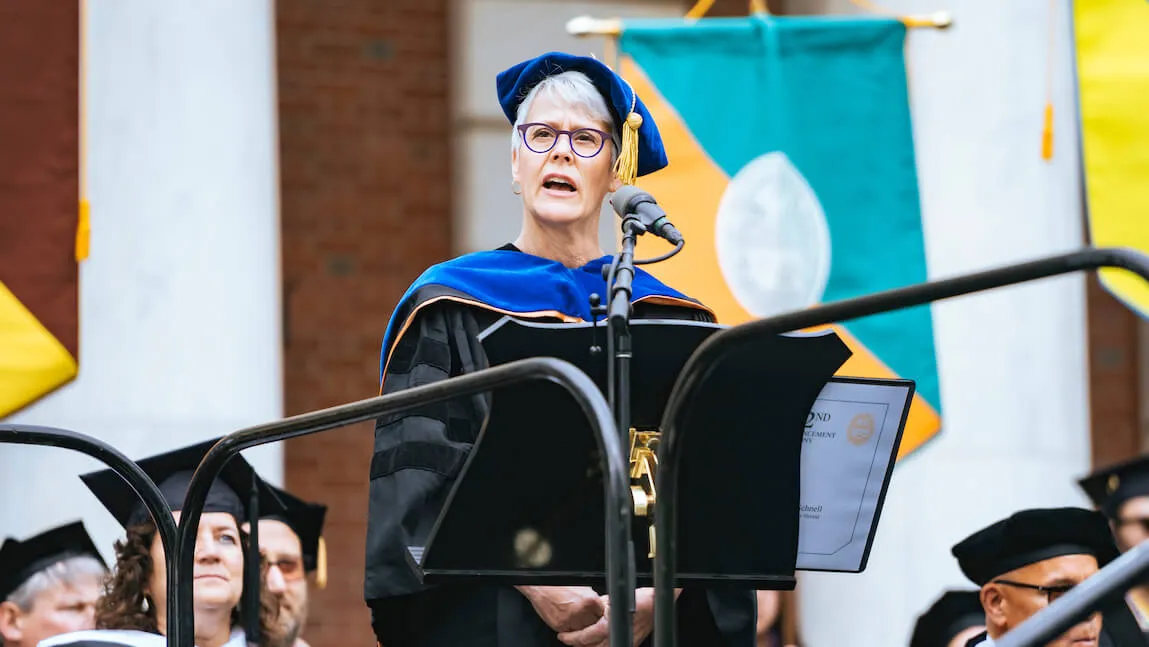The University of Vermont’s commencement ceremony on Sunday included a land acknowledgement for the first time, as University Herald Lisa Schnell read aloud a statement adopted by UVM’s Board of Trustees in October of last year:
“The campus of the University of Vermont sits within a place of gathering and exchange, shaped by water and stewarded by ongoing generations of Indigenous peoples, in particular the Western Abenaki.
“Acknowledging the relations between water, land, and people is in harmony with the mission of the university. Acknowledging the serious and significant impacts of our histories on Indigenous peoples and their homelands is a part of the university’s ongoing work of teaching, research, and engagement and an essential reminder of our past and our interconnected futures for the many of us gathered on this land.
“UVM respects the Indigenous knowledge interwoven in this place and commits to uplifting the Indigenous peoples and cultures present on this land and within our community.”
UVM’s land acknowledgment was crafted with input from the Vermont Commission on Native American Affairs and adopted through a Board resolution on Oct. 29, 2022. Official approval of the statement served as an important step in a broader, ongoing commitment by the university to address the history of marginalization, strengthen cross-cultural relations, and celebrate the State of Vermont recognition of the four Abenaki bands:
• Nulhegan Band of the Coosuk Abenaki Nation
• Elnu Abenaki Tribe
• Koasek Abenaki Tribe
• Mississquoi Abenaki Tribe
Land acknowledgment is considered a valued practice within Indigenous cultures that serves an important role in raising awareness of Indigenous people and their enduring relationship as stewards of these traditional territories. Recognition of the land is an expression of gratitude and a way of honoring Indigenous people—past, present, and future.
